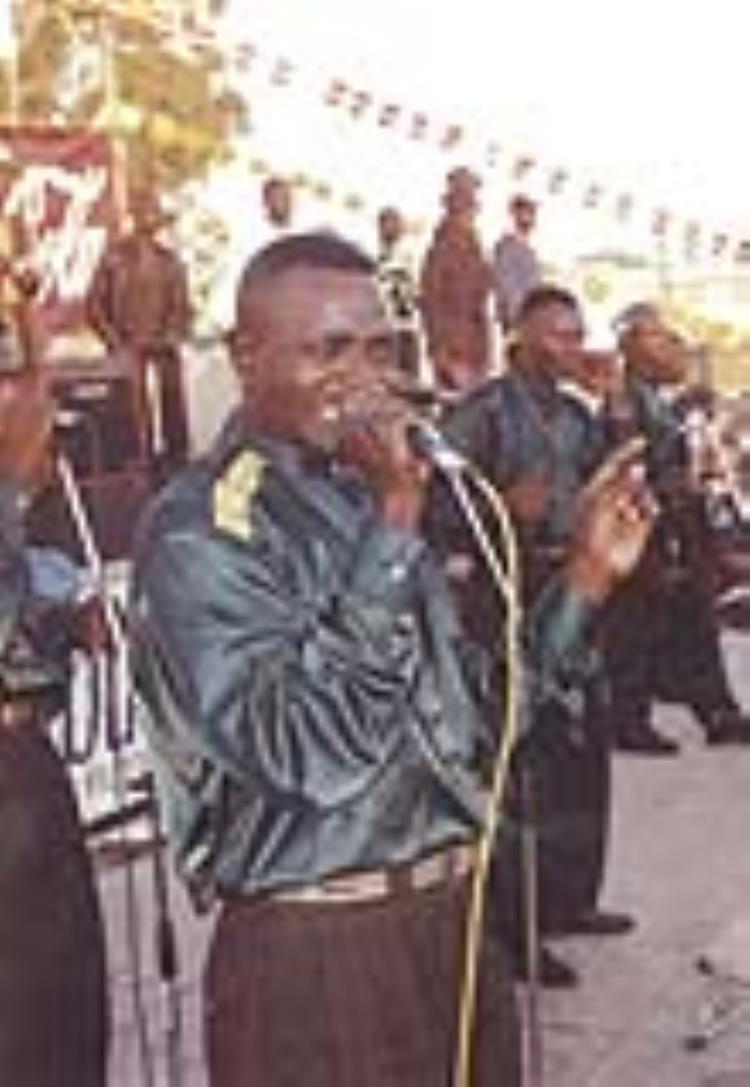
The Sunday Mail

The power of music cannot be underestimated.
Since time immemorial, music has been used to complement various aspects of our lives through conveying poignant messages.
Thus music by and large played a pivotal role in the execution of the wars of liberation in Zimbabwe.
Aptly titled Chimurenga music, the sound has had positive effects in the pre and post-independent Zimbabwe.
The Chimurenga music genre was popularised in the late 1960s after Ian Smith’s infamous Unilateral Declaration of Independence (UDI). It was a genre that emerged to address pressing political and social tensions and conflict between the African people and the white colonial system, through hard hitting social and political commentary.
Accordingly, we have heroes that never went to the front but made their contribution felt in the struggle through their lyrical prowess.
Through the revolutionary music, the oppressed black majority got a platform to express their displeasure where the formal means of representation were closed. They also used the platform to encourage the uprising against the colonial regime.
However, singing revolutionary music was risky.
Often the leading Chimurenga musicians like Thomas “Mukanya” Mapfumo and Cde Chinx Chingaira were incarcerated or harassed by the colonial regime. Thus, to keep morale high within freedom fighters at the same time avoiding arrest, the musicians began to tactfully compose their songs.
Most of the Chimurenga songs have an underlying meaning that settlers
struggled to decipher though it was clear to the black majority.
Songs like Mukanya’s “Madhebhura” and the late Tinei Chikupo’s “Chamunorwa” quickly come to mind.
To an unsuspecting person, “Madhebhura”, appears to be a love song yet it is laden with political message(s). In the song Mukanya warns that if you take his Madhebhura, he will fight you tooth and nail until he reclaims her. The Madhebhura being referred to in the song is Zimbabwe. Just like Mukanya, the late Chikupo’s song “Chamunorwa”, which appears to dwell on the life of a misguided gentleman causing all sorts of problems within his family, is in actual fact a political song. In one of the lines, he sang, “ . . .ngoma yamatipa inorira. Hanzi dzinotoridzwa navana muchadura mambo . . . Chamunorwa rega kudaro amai, Chamunorwa rega kudaro baba, hona vanozomuka ngozi.”
Chamunorwa is the settler and the mother and father being referred to in the song are the oppressed black women and men. The drums to the song exemplify a gun. In one of his interviews, Mapfumo had this to say: “I recorded all my war experiences on the album called “Hokoyo” and it became quite popular. As I was frightened of the law, I sang most of the songs on the LP using innuendos and ambiguous language, but it was all there.
“The message was loud and clear to all Shona speakers, ‘We must topple the Government’.”
While the armed struggle raged in different parts of the country, musicians used music to arouse the revolutionary mood among Zimbabweans.
But the role of music as a medium of instruction was to be later temporarily changed after the settlers used written church hymns to replace African religious songs and ritual music. Before independence, songs like “Sendekera Mukoma Chakanyuka”, “Emoyeni Kutyatshisa”, and “Nora” were used to psych up freedom fighters. But after independence, the focus changed. Songs like “Nhaka Yedu” by the Air Force of Zimbabwe Band, “Hoko” by Simon Chimbetu, “Come to Victoria Falls Down in Zimbabwe”, sung by Ruvhuvhuto Sisters, “Tongogara” and “More Fire” by Andy Brown were composed.
The songs were meant to consolidate the achievements of self-rule.
And around 2003 /4 several music jingles like “Kwedu Machembere”, “Sisonke”, “Our Future”, “Siyalima”, “Mombe Mbiri Nemadhongi Mashanu”, “Rambai Makashinga”, “Sendekera Mwana Wevhu” and “Zesa Yauya neMagetsi” were released to promote the agrarian reform and the rural electrification programmes.
Sociologist and University of Zimbabwe lecturer Prof Claude Mararike notes music was the oil that lubricated the struggle. “Music played a big role especially for morale boosting, inspiration and encouragement. The lyrics were inspiring. Church songs that were brought by missionaries were banned because they were used to try and derail the spirit of Chimurenga,” said Prof Mararike.
And Chimurenga music did not die with the coming of independence.
Rather it took a new dimension and began promoting nation building. Cde Chinx, one of the leading conductors of Chimurenga choirs during the war years, is still active to date. He together with the likes of the Light Machine Gun (LMG) choir, Mbare Chimurenga Choir and the late Marko Sibanda went on to compose songs that support post-independence achievements like the land reform and indigenisation programmes. However, Prof Mararike argues that a number of local upcoming musicians have since lost focus. “Of course, there is still music that inspires people but also much of the music no longer has substance. Our musicians are now too commercial or that which only focuses on church activities,” he said.
Adds music critic Prof Fred Zindi: “Music is a masterstroke to social life. Everything we do, funerals, weddings and any other social gatherings is surrounded by music. Liberation songs motivated people into fighting. Some of the songs are still relevant to date while others have lost meaning depending on how people derive meaning.”



